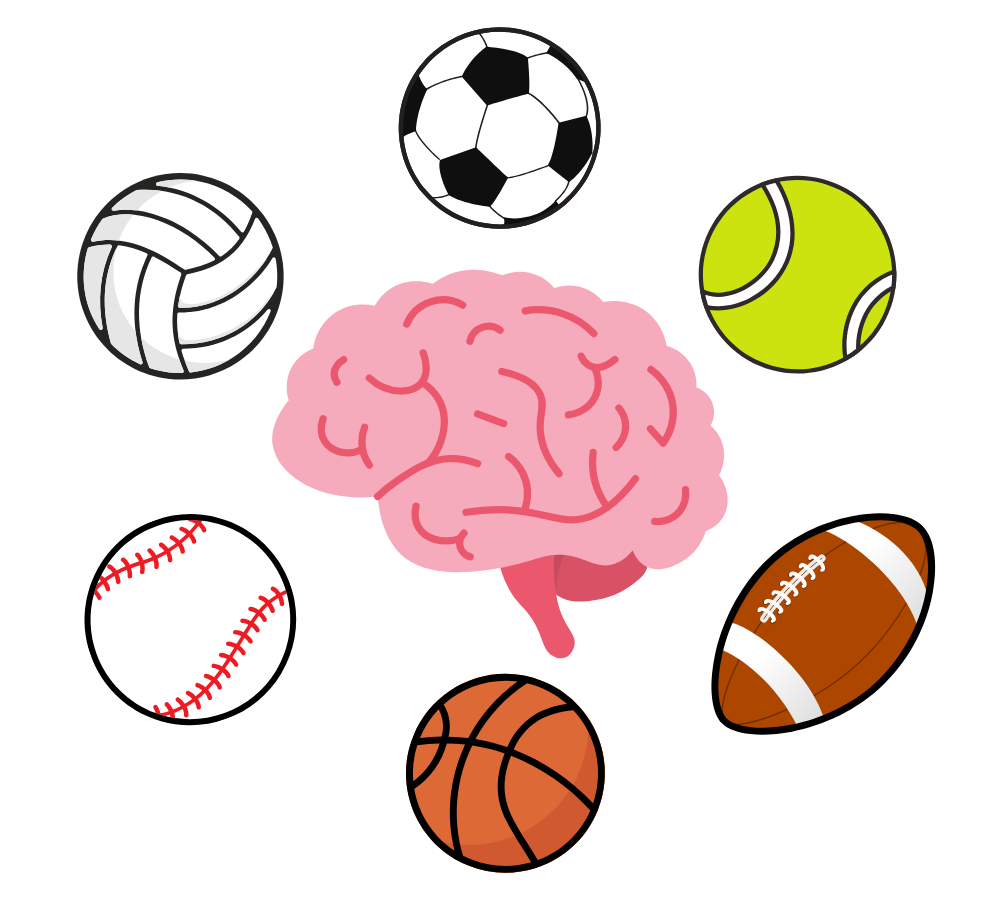Whether student-athletes just played their best or worst game, they can not help but think, “I could have done so much better.” However, a lot of athletes think the same thing about themselves. The side effects of sports on the brain have proven detrimental, especially for high school and collegiate competitors. Athletes have shown to experience mental health problems more than people know or bring attention to.
Whether for only freshman year or throughout all eight semesters into senior year, nearly 60 percent of high school students participate in a sports-related activity during their four years. These sports require a lot of energy and often lead to physical exhaustion. The desire to be better can appear frequently in high schoolers, especially athletes who repeatedly push themselves with little rest.
Studies have proven that physical exercise links to mental health, sometimes for the better or sometimes for the worse. Often, athletes will reflect on their game or activity and see their role as useless or unsatisfactory, resulting in degrading behavior toward themselves. An athlete might push themselves to extreme measures, wearing out their mind and body.
Over 80 percent of student-athletes have reported struggling with mental health. Even though so many fight with their mind, very few actually reveal they have problems or ask someone for help.
The role of a student athlete brings a lot of stress and comparison into the mind, which results in low self-esteem, confidence and possibly quitting a sport they have dedicated so much time to. Each person’s signs may look different, but they need to be taken seriously regardless.
Every government school requires counselors within it. These staff offer any student the opportunity to visit with them, ask them questions and talk about their problems with them. Many consider counselors a safe place, but often students do not take the opportunity. They usually feel embarrassed or alone when allowed to share their feelings. With this barrier between athletes and school counselors, sports psychologists and their study now play a significant role within the lives of student athletes and athletes alike.
Mental health has become a more openly discussed issue now that the public talks about it more than ever. With this topic of discussion, the popularity of sports psychologists has grown. Sports psychologists help boost performance and the mental stability of athletes and coaches. They use psychological principles and techniques to cope with mental health issues, overcome anxiety and assist recovery from physical or mental injury.
These issues not only affect high school athletes, but also anyone who partakes in sports throughout their life. Everyone should understand and know that someone will always be there to listen and help. In the mental battles of sports, academics and personal problems, a solution always exists to face those challenges and overcome those battles.
CITES:
Statistics on School Sports: How Many Students Play Sports? Which Sports Do They Play?
Prevalence of stress amongst high school athletes (v2) – PMC
It’s Time to Tackle the Mental Health Crisis of Student Athletes
Strength Isn’t Just Physical: Exploring Athletes’ Mental Health


